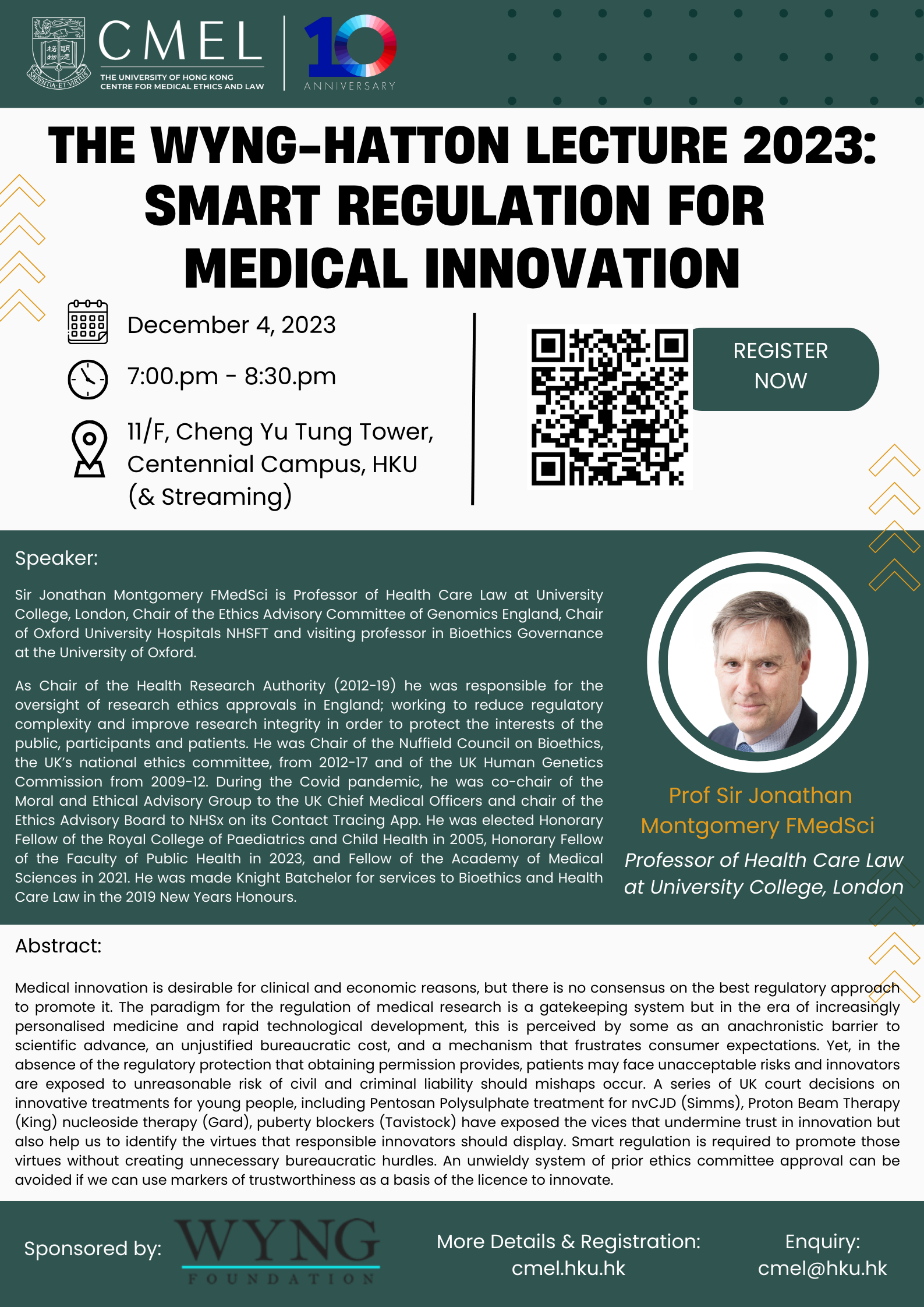Video recording (click here to watch on YouTube)
*Interpretation in English & Mandarin will be available (提供英語及普通話同聲傳譯).
Booklet: Click Here
Abstract:
Medical innovation is desirable for clinical and economic reasons, but there is no consensus on the best regulatory approach to promote it. The paradigm for the regulation of medical research is a gatekeeping system but in the era of increasingly personalised medicine and rapid technological development, this is perceived by some as an anachronistic barrier to scientific advance, an unjustified bureaucratic cost, and a mechanism that frustrates consumer expectations. Yet, in the absence of the regulatory protection that obtaining permission provides, patients may face unacceptable risks and innovators are exposed to unreasonable risk of civil and criminal liability should mishaps occur. A series of UK court decisions on innovative treatments for young people, including Pentosan Polysulphate treatment for nvCJD (Simms), Proton Beam Therapy (King) nucleoside therapy (Gard), puberty blockers (Tavistock) have exposed the vices that undermine trust in innovation but also help us to identify the virtues that responsible innovators should display. Smart regulation is required to promote those virtues without creating unnecessary bureaucratic hurdles. An unwieldy system of prior ethics committee approval can be avoided if we can use markers of trustworthiness as a basis of the licence to innovate.
About the Speaker:
Professor Sir Jonathan Montgomery FMedSci, Professor of Health Care Law at University College, London
Sir Jonathan Montgomery FMedSci is Professor of Health Care Law at University College, London, Chair of the Ethics Advisory Committee of Genomics England, Chair of Oxford University Hospitals NHSFT and visiting professor in Bioethics Governance at the University of Oxford.
As Chair of the Health Research Authority (2012-19) he was responsible for the oversight of research ethics approvals in England; working to reduce regulatory complexity and improve research integrity in order to protect the interests of the public, participants and patients. He was Chair of the Nuffield Council on Bioethics, the UK’s national ethics committee, from 2012-17 and of the UK Human Genetics Commission from 2009-12. During the Covid pandemic, he was co-chair of the Moral and Ethical Advisory Group to the UK Chief Medical Officers and chair of the Ethics Advisory Board to NHSx on its Contact Tracing App. He was elected Honorary Fellow of the Royal College of Paediatrics and Child Health in 2005, Honorary Fellow of the Faculty of Public Health in 2023, and Fellow of the Academy of Medical Sciences in 2021. He was made Knight Batchelor for services to Bioethics and Health Care Law in the 2019 New Years Honours.
Commentators:
Professor Wei Zhu, Associate Professor, Applied Ethics Center and Department of Social Sciences, Fudan University
Dr Ping Ji, Deputy Director, Clinical Research Institute, Shenzhen-Peking University-The Hong Kong University of Science and Technology Medical Center, Shenzhen


